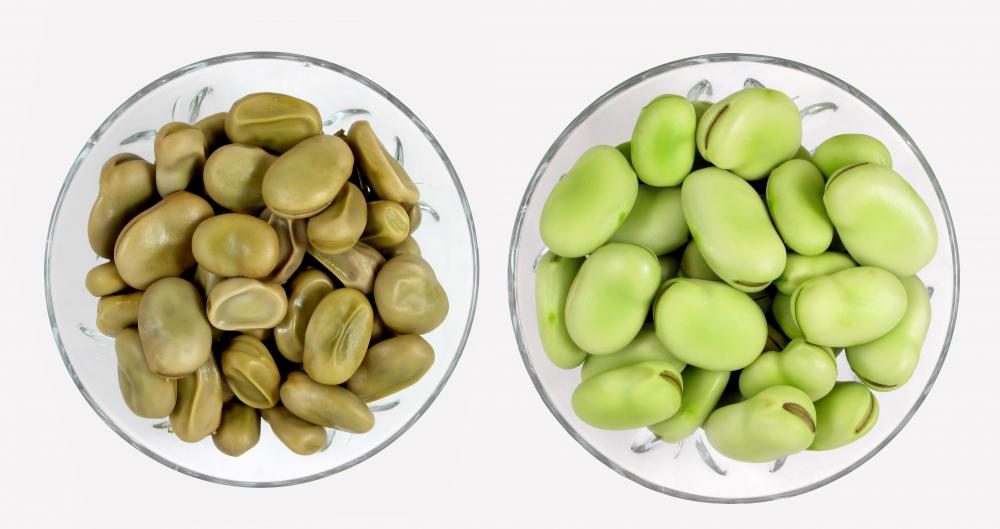At WiseGEEK, we're committed to delivering accurate, trustworthy information. Our expert-authored content is rigorously fact-checked and sourced from credible authorities. Discover how we uphold the highest standards in providing you with reliable knowledge.
What are Isoflavones?
Isoflavones are a type of organic compound found in certain types of plants. Along with many other types of plant compounds, these are called phytonutrients because of recent scientific evidence pointing to the important roles they play in nutrition and health. Some isoflavones are also known as phytoestrogens because they are able to mimic the effects of estrogen in humans.
The most common sources of isoflavones in food are soybeans and soy products such as miso and tofu. Other sources of these phytonutrients include legumes such as kudzu, fava beans, chickpeas, peanuts, red clover and alfalfa. Plants that produce these molecules typically do so as a protection against fungi and other disease-causing microorganisms. Soybean plants also use these compounds as a means of increasing soil concentration of nitrogen, an essential plant nutrient.

Scientific and medical opinions of isoflavones are mixed. There is much evidence to indicate a positive role in human health for some types of isoflavone, but other compounds in this category have negative effects. The large amount of conflicting evidence regarding these phytonutrients is partly because the isoflavone category includes many different compounds, including phytoestrogens and antioxidants.

Isoflavones can have profound protective effects on human health. Regularly consuming soy products has been shown in several studies to provide protection against breast and prostate cancer, osteoporosis, heart disease and symptoms of menopause. Many of these health benefits are because of the presence of isoflavone compounds.
Some of the positive effects of isoflavone compounds are directly because of their resemblance to estrogen. The similarity to estrogen means that phytoestrogens compete with estrogen for access to cellular estrogen receptors. This means, for example, that excess estrogen in the body is less likely to increase susceptibility to estrogen-dependent cancers. The same compounds also can ease menopausal symptoms by mimicking the effects of estrogens when the body’s natural estrogen levels drop.

In contrast to these protective effects, isoflavone compounds that are also phytoestrogens are thought to have negative effects on fertility. The evidence to support this indication includes observations that sheep grazed on large amounts of clover had reduced fertility. The clover plant is a member of the legume family, and it produces phytoestrogens.

Excess consumption of isoflavone-containing foods is thought to slightly reduce fertility in men. Some studies indicate that women who have breast cancer or who have had breast cancer should be cautious of excess soy consumption. This is because of the possibility that large amounts of phytoestrogens might encourage growth of estrogen-dependent tumors.
Currently there are no clear guidelines about the quantities of phytoestrogens that are considered safe or potentially harmful. The results of many studies are in direct conflict with one another, suggesting that the picture regarding safety and efficacy of phytoestrogens is incomplete, at best. Eating soy products in moderate amounts generally is regarded as safe, but over-consumption should be avoided.
AS FEATURED ON:
AS FEATURED ON:














Discuss this Article
Post your comments